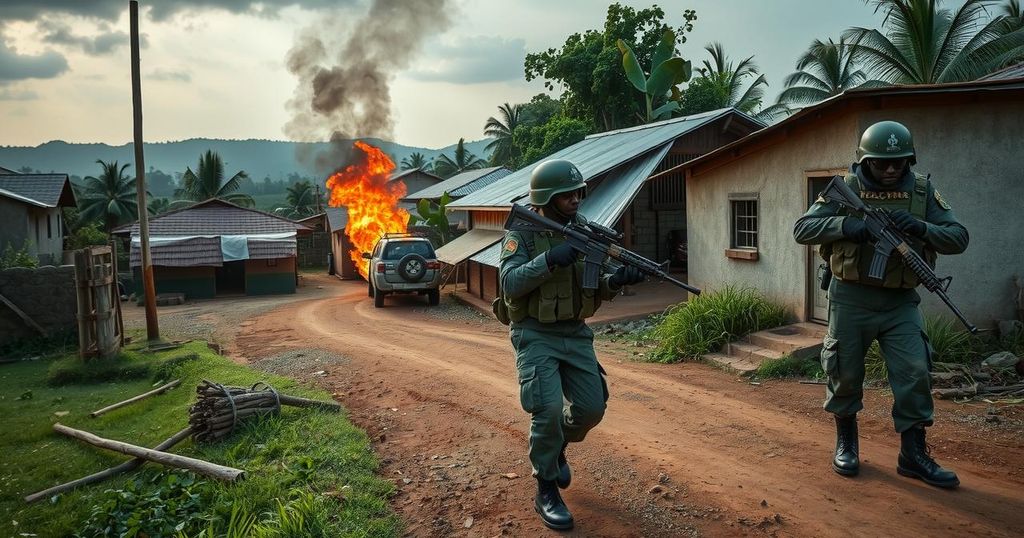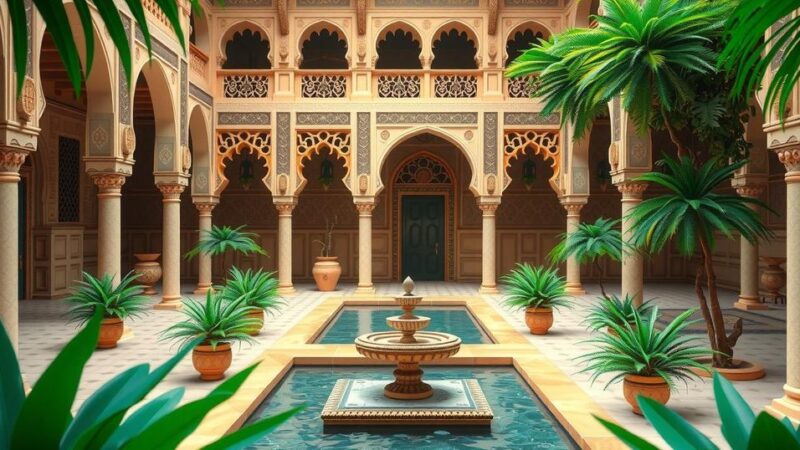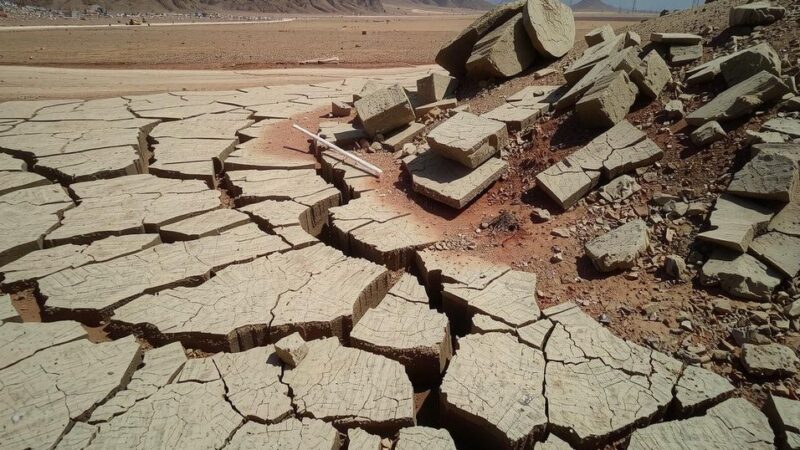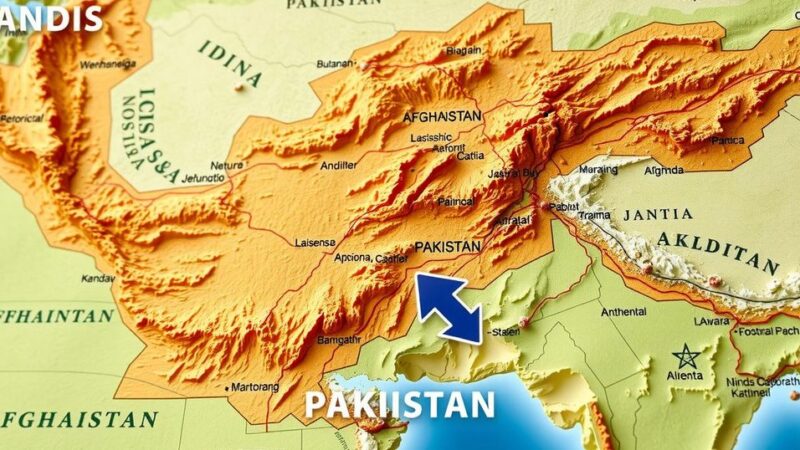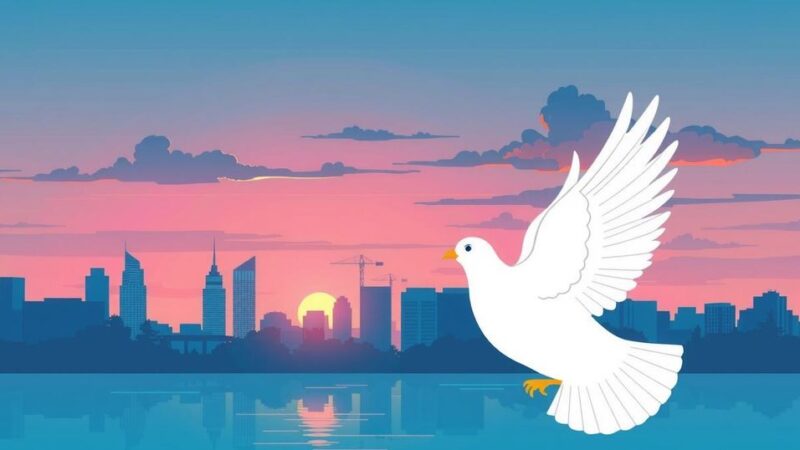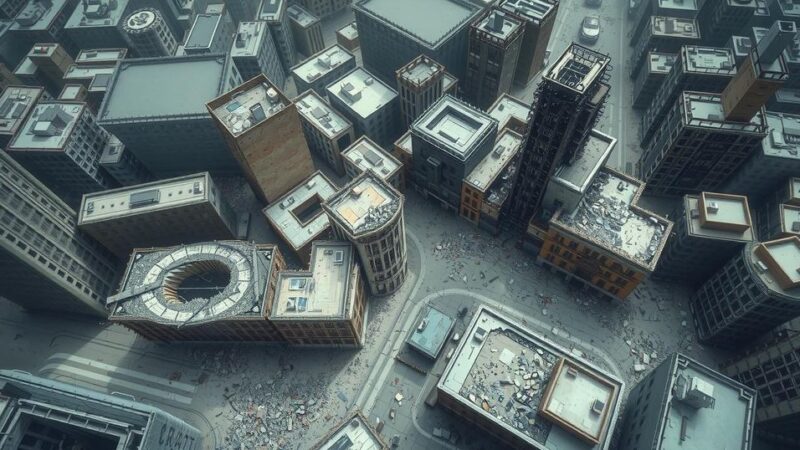Rwanda-backed M23 rebels have seized control of the town of Masisi in eastern DR Congo, marking their second town capture in two days. This escalation contributes to a significant humanitarian crisis as the ongoing conflict has displaced hundreds of thousands. Attempts at mediation between DR Congo and Rwanda have failed, raising concerns over regional stability and military preparedness.
Rwanda-supported rebel forces have successfully taken control of Masisi, a strategic town in the eastern Democratic Republic of Congo, as reported by multiple sources. This marks the second significant seizure by the M23 group within a few days, furthering their extensive territorial gains in the mineral-rich North Kivu province since 2021. The escalation of conflict has resulted in the displacement of hundreds of thousands of civilians, highlighting the dire humanitarian crisis stemming from renewed violence in the region.
Efforts to mediate the conflict have been made by Angola, which has engaged with President Félix Tshisekedi of the DR Congo and Rwandan President Paul Kagame; however, these discussions collapsed last month. Alexis Bahunga, a member of the North Kivu provincial assembly, expressed concern over the situation, stating, “It is with dismay that we learn of the capture of Masisi centre by the M23,” emphasizing the urgent need for governmental action to strengthen military support in the area.
Residents of Masisi reported that the M23 convened a meeting with locals, proclaiming their intent to “liberate the country.” The Congolese government has yet to issue a statement regarding the loss of control over Masisi, which serves as the administrative capital of the territory and is home to approximately 40,000 inhabitants. Its strategic importance is underscored by its proximity to Goma, a previous target of the M23’s aggression in 2012.
This recent capture follows another takeover of the nearby town of Katale. Although the M23 has not posed a significant threat to Goma for some time, fears persisted last year that they might advance on the city of two million. Following a brief cessation of hostilities, violence reignited in early December. Rwandan forces, reportedly numbering around 4,000, have allegedly been deployed alongside M23 rebels, a claim Rwanda has not denied, while accusing the Congolese government of insufficient action against the longstanding turmoil in eastern Congo.
The M23, established as a faction of a prior rebel group, initially aimed to protect the Tutsi community, which has faced systemic discrimination. However, critics accuse Rwanda of exploiting the M23 to extract valuable minerals from eastern DR Congo, including gold and cobalt, vital for technology production. Additionally, in a recent development, the DR Congo has pursued legal action against Apple over the use of conflict minerals, prompting the corporation to confirm it has ceased sourcing from the region.
The ongoing conflict in the Democratic Republic of Congo has deep historical roots, with escalations often tied to regional dynamics involving neighboring Rwanda. The M23 rebel group emerged in 2012, purportedly to defend the Tutsi population amidst ongoing violence and discrimination. The region is rich in valuable minerals, which has attracted external influences and intensifies local strife. The humanitarian impact has been profound, with vast numbers of civilians displaced and ongoing tensions undermining regional stability. Recent mediation attempts have faltered, leaving civilians vulnerable amidst a complex geopolitical landscape.
The sea change in Masisi’s control underscores the precarious nature of security in eastern DR Congo, as the M23 rebels gain ground amid a backdrop of humanitarian distress and international diplomatic efforts. Continued instability threatens both local governance and regional peace, prompting urgent calls for military reinforcements and renewed dialogue. With mineral resources at stake, the interplay of local grievances and external influences remains critical to understanding this evolving crisis.
Original Source: www.bbc.co.uk

